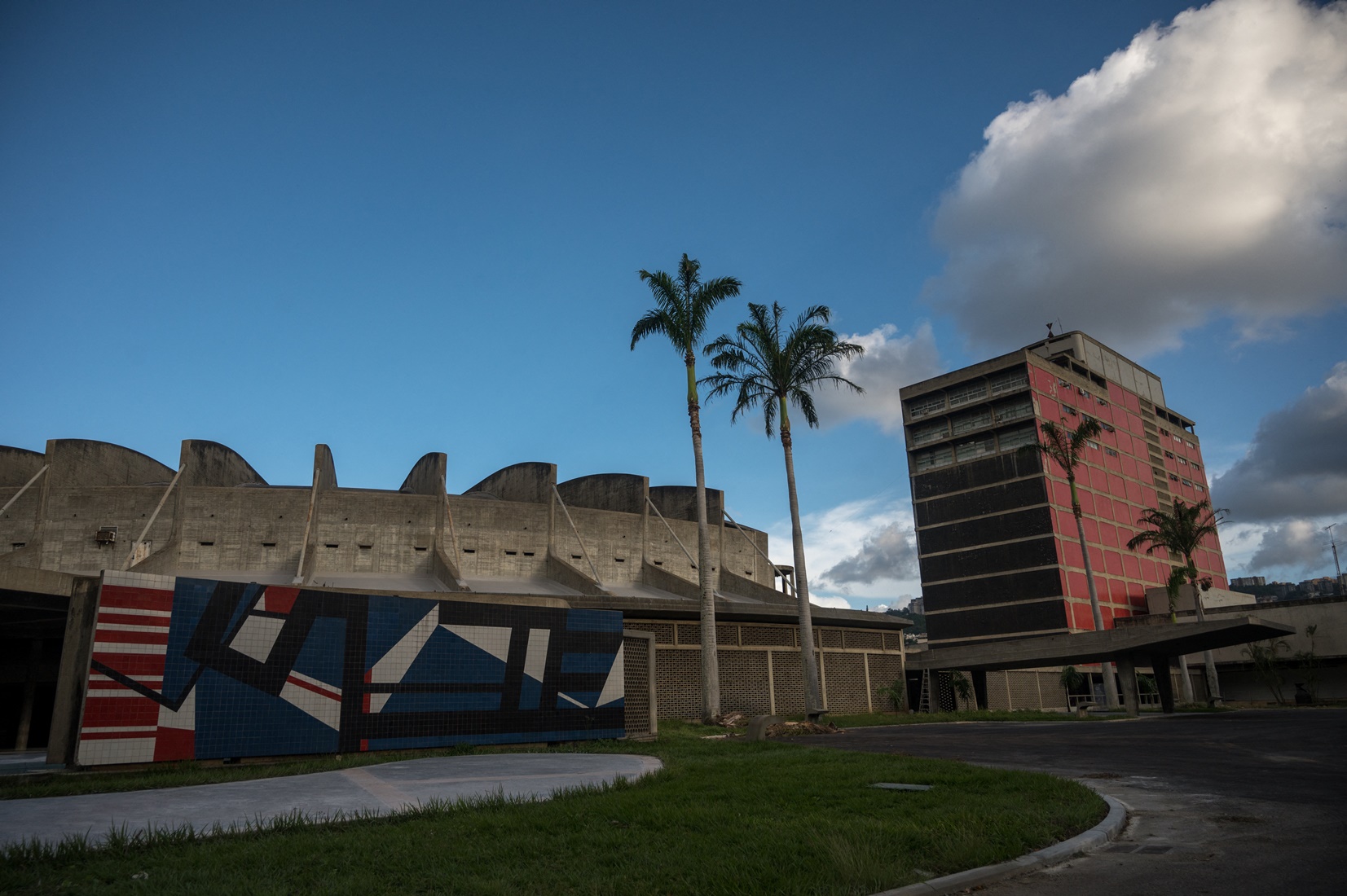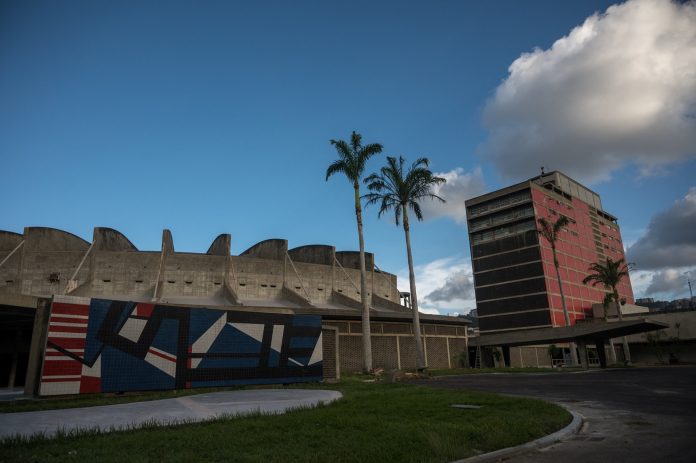
After 15 years, The Central University of Venezuela (UCV) is preparing to elect almost 600 positions of new university authorities on May 26 who will be in charge of the institution for the period 2023-2027. In an unprecedented process, which for the first time incorporates the vote of administrative employees and workers, the house of studies with more than 300 years of history hopes that these elections will not only be the preamble to many good things for the institution but also for the country.
About 222,000 students, graduates, administrative and academic staff are enabled to elect the rector, academic vice-rector, administrative vice-rector, deans, secretary and five professorial representatives before the University Council.
In each faculty, a professor will be elected before the Appeals Council, a dean and seven professorial representatives before the Faculty Council. In addition, in each school, five teacher representatives will be voted before the School Council.
For the first time, in the 302 years that the UCV has, the electoral roll is expanded so that the worker and administrative staff of the institution can exercise the right to vote, a condition imposed by the Supreme Court of Justice.
“There are many people waiting for these elections. People who are 15 years in college and have never voted. The intention is that as many people as possible can participate in this unprecedented process.. After many years, it is democratized and opportunities are given to all the sectors that make life within the institution,” said Humberto Angrisano, secretary of the Electoral Commission from the UCV.
The voting process will be enabled from 8:00 am to 7:00 pm, only in person. The results can be given in the early hours of May 27.
In the event that no candidate obtains 50% of the votes, a second round will be held on Friday, June 23. Winners will be announced on July 14.
Although so far the suspension of activities for election day is not planned, due to the nature of the process, it may be difficult to teach classes normally, Angrisano said.
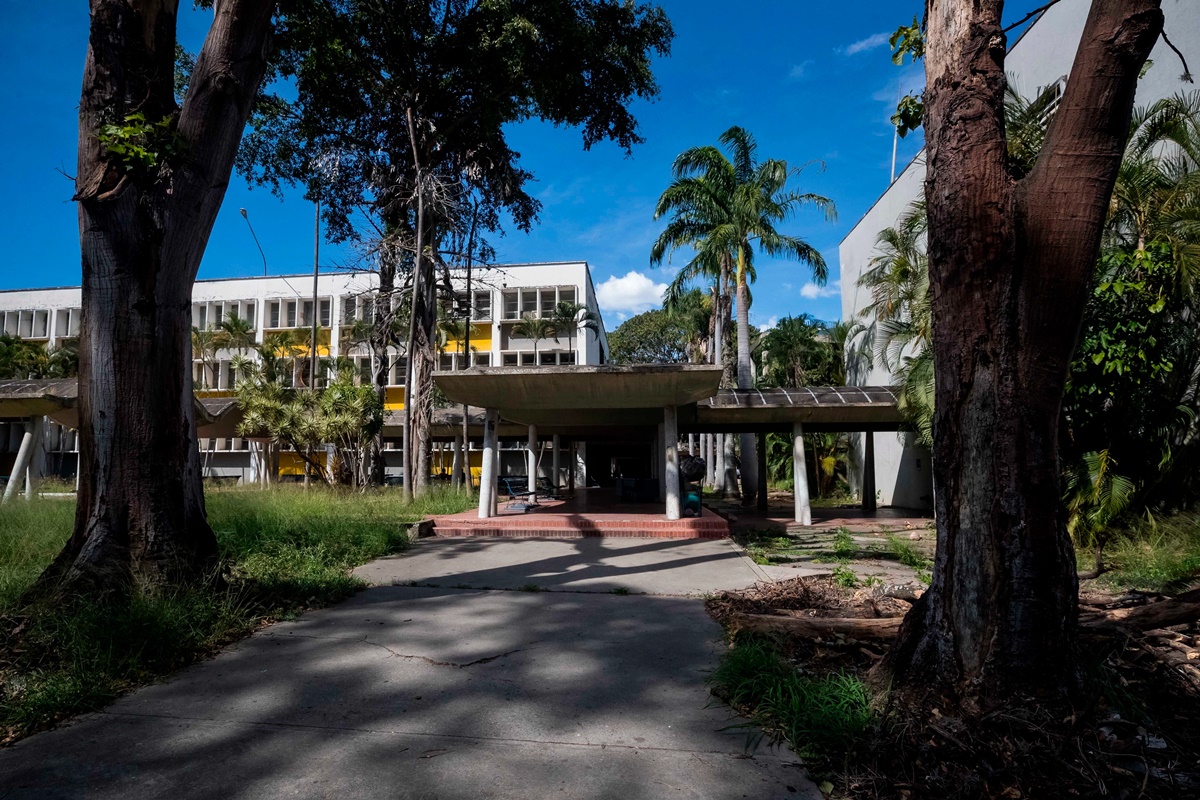
What is the voting process like?
The voting process will be manual and will not have the technical support of the National Electoral Council (CNE). Active teachers will have three ballots, retired teachers two. The rest of the voters only one.
Neither the administrative staff nor the workers will have the right to vote for the professorial representatives to the different instances of the university co-government. Meanwhile, undergraduate students and graduates may only vote to elect rector, vice rectors, secretary, dean and candidates for the Appeals Council.
Voting will be done through a open list system which consists of the personalized proportional representation with which each group or electoral option presents a list of candidates.
Each voter will vote for a maximum of candidates equal to the number of main representatives to be elected. A voter can choose candidates, either from the same list or among several lists.
The choice is also of form uninominalthat is, each voter votes for each of the positions individually, selecting only one candidate per position.
Each faculty will have between five and seven polling stations operating, which will be divided among active, retired teachers, administrative staff, students and graduates. Active students and teachers will have one table per school and the rest of the tables will be centralized.
Angrisano indicated that a large number of people will work to carry out the electoral process on May 26. “That day the members of the electoral commission will be active, in addition, each faculty has an electoral subcommittee. Additionally, students are also creating volunteer information-to-vote brigades.”
He explained that to expedite the process, on election day voters will be able to enter a web page, write their identification number, and thus verify at which table they vote, which faculty, which notebook and which line, in such a way that people can go directly to vote.
“The students will be collaborating with that scheme that day and even the teachers themselves, the candidates, all the electoral groups, table members and table witnesses,” added the secretary of the electoral commission.
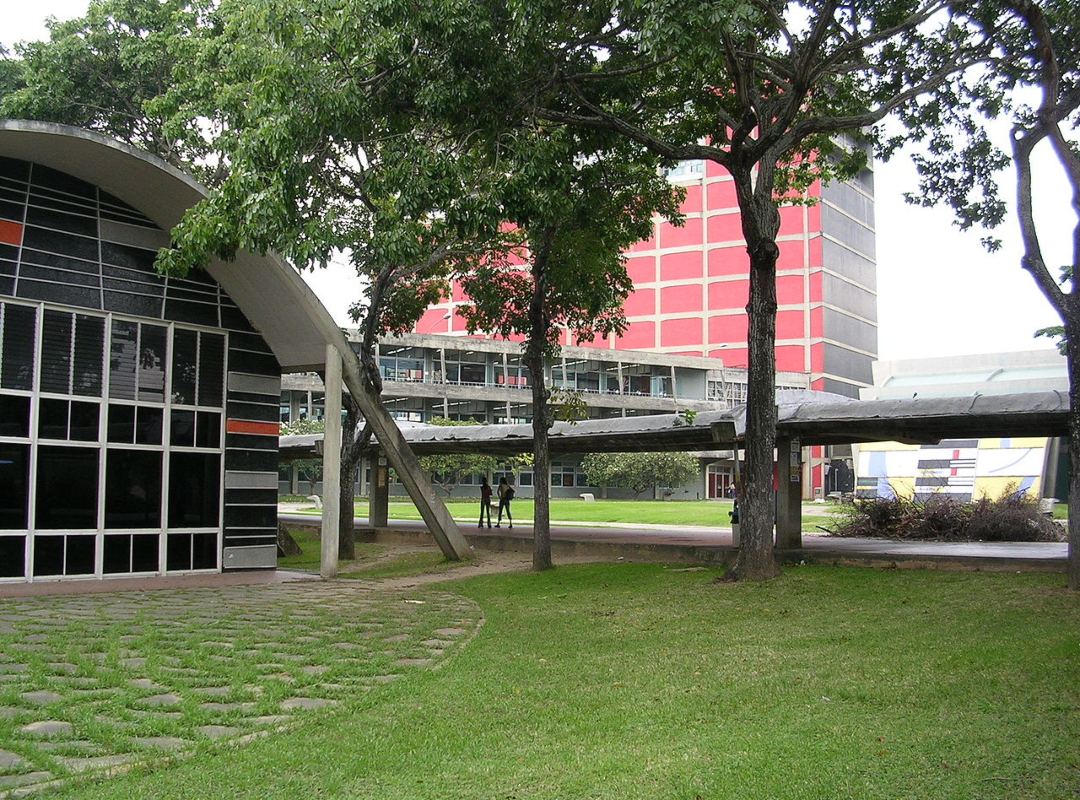
Vote count and totalization
The vote counting process will be automated, with optical readers that will read the ballots. The scrutiny will be verified as the tables close and a web page will be available so that the university community and the entire population can see the results live.
The totalization will be given a few hours after the scrutiny, verifications and corresponding audits have finished. “In general the final result is published at dawn or on Saturday morning»Angrisano said.
The secretary of the electoral commission explained that each sector has a percentage of participationwhich must be carried out through a proportionality formula that will give the number of votes.
For the renewal of the authorities, the percentage of participation was distributed as follows: UCV graduates will have 5%, administrative employees 10%, workers 10%, students 25%, and teachers 50%.
This translates into that one teacher equals one vote, four students equal one vote, for every 10 administrative workers it will be one vote, just as for every 10 workers it will be one vote, while graduates will represent one vote for every 20 people .
“It is a fully automated process. The only manual part of the process will be the vote,” added Angrisano.
Who are the candidates?
In these elections will participate seven boards each made up of a rector, an academic vice-rector, an administrative vice-rector and a secretariat.
Among the main plates is United by the U which presents Enrique López-Loyo (Medicine) as a candidate for rector, Inírida Rodríguez (Engineering) as academic vice-rector, Douglas Ungredda (Faces) for administrative vice-rector and Eladio Hernández (FCJP) for the secretariat.
by the plate of University Commitment there is Amalio Belmonte (Faces) for the rector’s position, María Fátima Garcés (Medicine) as academic vice-rector, José Balbino León (Engineering) for the administrative vice-rectorate and Vidal Sáez (FHyE) for the secretariat.
Active for the U It has Humberto Rojas (Science) as rector candidate, Aura Marina Boada (FHyE) for academic vice rector, Nelson Chitty (FCJP) as administrative vice rector and Corina Aristimuño (Dentistry) for the secretariat.
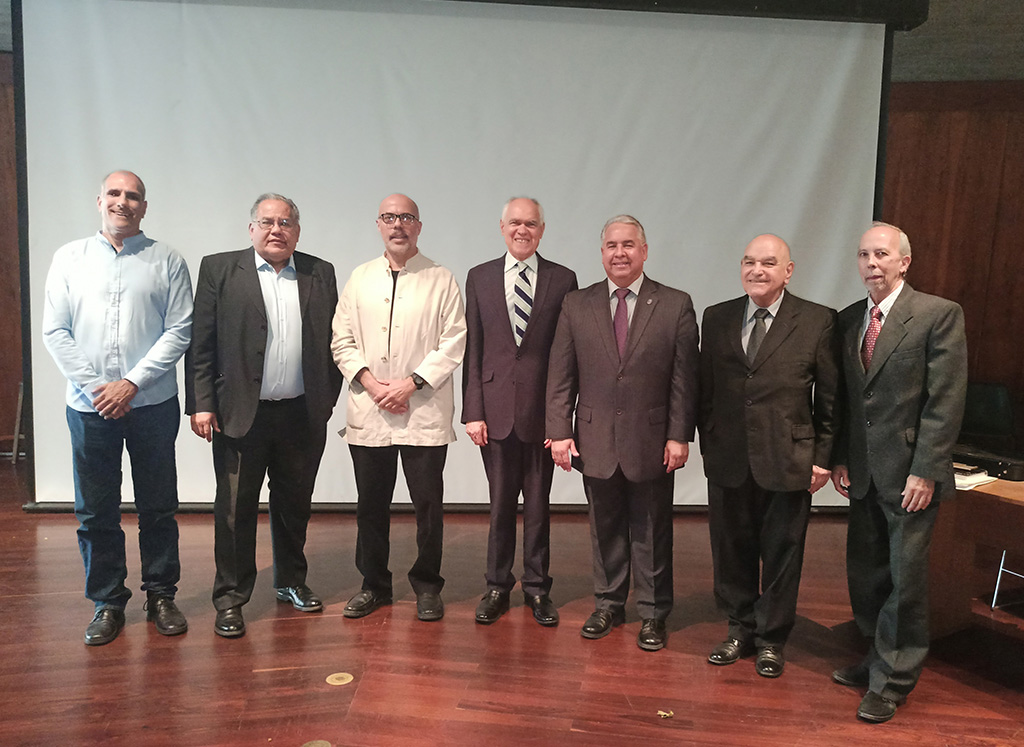
As for the plate of the AutonomistsRómulo Orta (Medicine) is presented as rector, Rafael Salas (Medicine) for academic vice-rector, Rubén Darío López (Medicine) as administrative vice-rector and Amalio Sarco Lira for the secretariat.
The plate of chavismo, Together for Heritagehas Miguel Alfonzo (Medicine) as a candidate for rector, Lermit Rossel (Dentistry) for academic vice-rector, Eleazar Mujica (Sciences) for administrative vice-rector and Alicia Cáceres (Sciences) for the secretariat.
by the iron Academic Consensus Víctor Rago (Faces) is a candidate for rector, Arturo Alvarado as academic vice-rector, Yudi Chaudary for administrative vice-rector, and Vilma Núñez as secretary.
Lastly, the iron Opening presents Paulino Betancourt (Sciences) as a candidate for rector, Nina Polanco as a candidate for academic vice-rector, Emilio Flores for administrative vice-rector and Amalio Sarco Lira, as a candidate for secretary.
Elections with high expectations
The last elections held at the UCV were in 2008 and since then three processes have been skipped, which generates high expectations in the electoral event that will take place next Friday, May 26.
Only two of the four authorities elected in these last elections remain in their positions: the rector Cecilia García Arocha and Amalio Belmonte as secretary, although he also holds the position of administrative vice-rector in charge, after the resignation of Professor Bernardo Méndez. In July 2022, the academic vice-rector Fernando Bianco passed away.
The Electoral Chamber of the Supreme Court of Justice promulgated in 2009 a precautionary measure that ordered the suspension of university elections as long as the university does not modify its electoral regulations.
The university authorities filed an appeal against the measure that was answered 10 years later with ruling no. 0324, which ordered that the UCV hold elections under a transitional regime and established a Voting system by sectors to take into account the vote of the workers of the institution.
Both the UCV and other public autonomous universities in the country refused to comply with the demands, which caused the Electoral Chamber and the Constitutional Chamber of the TSJ to prevent the holding of the elections until they accepted the changes that were imposed.
At the University Council held in January, all the actors gave up their positions so that it was possible to convene the process on May 26. A was approved transitory regulation that will not apply to other electoral processes in the UCV or to other autonomous universities.
«The UCV, with its 300 years, is a benchmark for the country. This is an unprecedented process, the UCV is the first that is assuming the possibility of elections after the sentence of the TSJ. It is an invitation to the entire Ucevista community to go and exercise their right to vote. This exercise of choosing the people who will take over the reins of the university for the next four years requires everyone to assume an academic and moral commitment to the university. These elections are the preamble to many good things that can happen in the country in the coming months,” said Angrisano.
@ErikaHDelaR
